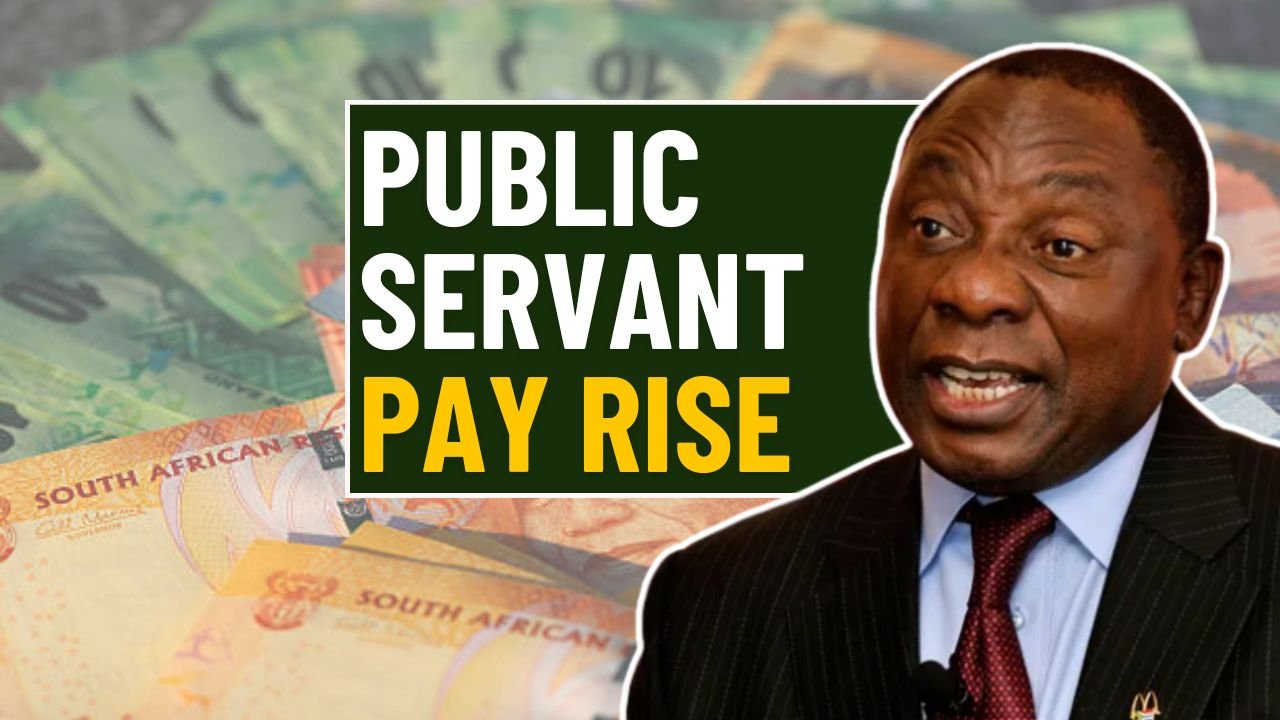After enduring years of stagnant pay and wage disputes, over 1.2 million government employees in South Africa are finally set to benefit from a long-anticipated salary adjustment in May 2025. The Public Service Coordinating Bargaining Council (PSCBC) has reached a breakthrough agreement with unions, offering a renewed sense of dignity and financial relief for workers at all employment levels.
Balancing Equity and Recognition Through a Tiered Increase Model
The newly agreed salary increases follow a progressive model aimed at narrowing wage disparities within the public sector. Employees at the lower end of the pay scale specifically those on levels 1 to 5 will experience the largest growth, with increases ranging from 6.6% to 6.7%. Higher-ranking officials, including those on levels 13 to 15, will see more moderate raises, varying between 4.6% and 5.9%. This structure is designed to address income inequality while acknowledging the value of all roles in public administration.
Detailed Salary Adjustments Set to Roll Out in May
The 2025 salary adjustments will reflect notable gains across all levels. For instance, entry-level employees earning R9,100 in 2024 will now receive R9,700 monthly. Mid-tier employees, such as those on level 7, will have their monthly income rise from R18,900 to R20,100, while senior officials at level 15 will experience a jump from R67,000 to R70,100. Annual increases vary accordingly, with some public servants gaining over R30,000 more per year.
Major Revisions to Allowances Highlight Critical Sector Support
In addition to base salary increases, significant changes have been introduced to several allowances that support public servants in demanding roles. Housing allowances will rise from R1,500 to R1,700, and medical aid subsidies will increase modestly to R1,254. Security service personnel are set to receive a dramatic enhancement in their danger allowance, jumping by 66.7% to R2,500. Teachers in remote areas will see their rural allowance increase from 10% to 18% of their basic salary, while night shift workers will now earn R50 per shift an increase of nearly 43%.
Inflation-Proofing Salaries Through a Built-In COLA System

A transformative aspect of the new agreement is the introduction of a permanent Cost-of-Living Adjustment (COLA). This mechanism ensures that salaries will automatically rise in line with the Consumer Price Index (CPI), with adjustments triggered when inflation exceeds a 3% threshold. The system removes the need for contentious annual negotiations, offering predictability for workers and stability for government budgets.
Sector-Specific Enhancements Cater to Varied Public Roles
Targeted benefits are being rolled out across departments to meet the unique challenges faced by employees in different sectors. In education, a revised rural allowance, enhanced career pathways, and updated qualification incentives will uplift teachers. Healthcare professionals will benefit from revised occupation-specific packages, special skills allowances, and a pandemic bonus. In the security services, increased danger pay, improved overtime, and expanded injury benefits have all been confirmed.
Phased Rollout Timeline to Ensure Smooth Implementation
The implementation of these changes follows a well-planned timeline. The official announcement occurred in March 2025, followed by system upgrades in April. The first adjusted salaries will be paid in May, while revised allowances will be processed between May and June. Any applicable back-pay for prior months will be disbursed by July, with an overall review set for August to ensure effective delivery and resolution of any discrepancies.
Strategic Financial Advice for Beneficiaries of the Salary Increase
With additional income, public servants are encouraged to plan their finances wisely. Financial experts suggest adjusting monthly budgets to reflect the new earnings, eliminating high-interest debt, and building emergency savings. Increasing retirement contributions through the Government Employees Pension Fund (GEPF) is another recommended strategy. Furthermore, understanding how the revised salary affects one’s tax obligations can help optimize long-term financial outcomes.
National Investment with Long-Term Economic Potential
This bold salary revision represents a government investment of R45 billion annually in its public workforce. According to economists, this injection of funds is likely to stimulate economic growth by boosting household spending and creating positive ripple effects across various industries. Policymakers have affirmed that the increase is financially sustainable and falls within the current fiscal planning framework.
Laying the Groundwork for a Transformed Public Service
More than just a wage increase, the 2025 agreement is part of a broader reform strategy for South Africa’s public service. Enhancements to performance management systems, digital service delivery, professional development, and anti-corruption safeguards form the backbone of this renewed commitment to public sector excellence. These changes signal a brighter future for both public servants and the communities they serve.

